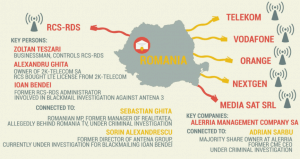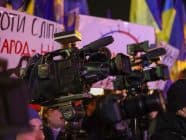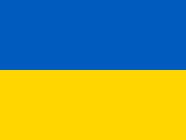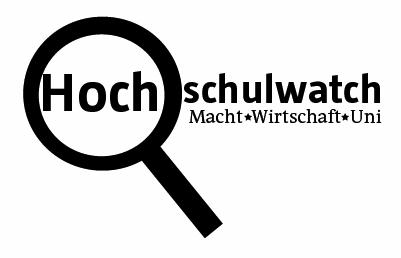The Internet is not free or uncontrolled. Its infrastructure is owned by a combination of international mobile companies, politicians and businessmen, some of whom have criminal links, new research reveals.
A number of companies controlling a major part of the market hide their owners’ identity behind a network of offshore companies and proxies, researchers found. Through these offshore companies the internet – and public access to information – is often controlled by individuals facing charges of corruption, tax evasion and fraud.
The Internet can also be controlled by the state, as happened in Turkey and is now happening in North Korea.
The study, Who are the Gatekeepers of the Internet?, is based on a detailed investigation into media ownership by journalists and academic researchers. They used data to map major owners of digital infrastructure (Internet, cable and satellite) in Eastern Europe and South Caucasus, specifically Armenia, Bulgaria, the Czech Republic, Hungary, Romania, Serbia, Slovakia, Slovenia and Ukraine.
Internet in Romania, Serbia and Ukraine comes from tax havens
In Romania researchers analysed the 15 biggest internet service providers. Between them these companies effectively control Romania’s internet.
Of the 15 companies, the identities of ten owners were hidden behind complex networks of offshore companies (registered in tax havens) and intermediates. The links between these owners and their companies is revealed on the project’s website. Detailed graphics on the site reveal the owners’ identities as well as their business and property-owning networks.
Researchers also discovered that more than ten of the 15 Romanian companies studied have political links and that nearly half (six out of 15) internet service providers (ISPs) are connected to persons or companies currently facing criminal charges related to fraud, taking and giving bribes, forged documents or illegal use of state property.
Compared with the other countries studied, Romania has a particularly high number of individuals and companies involved in criminal trials. It is probably an effect of intensifying anti-corruption actions, and not of a higher level of crime in comparison to other countries in Eastern Europe or South Caucasus. An image of the largest owners of data infrastructure in Romania is found in Figure 1.
Fig. 1. The most important suppliers of electronic communications in Romania. EurActiv image used with permission
.
In Ukraine, the 13 communications service providers analysed by researchers initially appeared to be foreign investors. However, most of Ukraine’s ISPs are controlled by Ukrainian businessmen, operating through offshore companies in Cyprus or the Virgin Islands.
Almost half of the companies examined in Ukraine have obscured their ownership. The head of at least one of the country’s largest telecommunications companies has been linked by police to criminal networks.
Although there are allegations about illegal businesses of some ISP owners, no firm ties with people or companies with pending criminal cases were identified. The top three players in the Internet in Ukraine are represented in Figure 2.
 Fig. 2. Leading suppliers of electronic communications in Ukraine. EurActiv Image used with permission
Fig. 2. Leading suppliers of electronic communications in Ukraine. EurActiv Image used with permission
Of ten major internet service providers in Serbia, four have hidden ownership. “It’s interesting that so many domestic ISPs operate in secrecy, given their unfettered access to users’ highly personal data. While state institutions control the use and sharing of this data, they don’t seem overly interested in who owns the ISPs, some of which disappear into a maze of offshore companies, proxies and lawyers obscuring the real owners”, say Serbian journalists.
In Armenia and Bulgaria the journalists identified Russian links to the ISP ownership, in Moldova the state is controlling a large part of the market, in Serbia one of the ISP appeared in the Edward Snowden’s files.
Through hard data and analysis of ISP ownership in a sensitive region, the team of journalists and researchers hopes to put ownership and access to data in Eastern Europe and South Caucasus onto the public agenda.
Why is the information about media owners important?
Investigative journalists from two international networks, Organised Crime and Corruption Reporting Project (OCCRP) and Rise Project, who specialise in tracking financial links between politics, organised crime and apparently legitimate business, participated in the project. They mainly relied upon information publicly available in countries where freedom of information legislation is in place.
In an article published in the Romanian Journal of Journalism and Communication Manuela Preoteasa and Andrei Schwartz, two of the researchers who participated in the study, explain the importance of knowing who owns the companies that control access to information and opinion. “The Internet has become the single most important communication tool around the world…” they write.
“The infrastructure of the Internet, composed of Internet Service Providers (ISP) and their global interconnections, illustrates a series of technical capacities which have the potential of infringing the … freedoms [of expression and information].”
Banking transactions are increasingly made via the Internet. Police and prosecutors communicate using the telecommunications infrastructure. Political communication and access to company and product information is carried via the Internet. However, despite their importance we know very little about who controls the networks.
Preoteasa and Schwartz highlight issues of concern related to the ownership and the control of the Internet infrastructure and make several recommendations:
(1) the ability of the ISP owner to limit or block traffic from a particular content provider to a specific audience.
(2) freedom of expression, protected by the laws of many countries from government intervention, is potentially vulnerable to the interventions of commercial companies.
(3) to limit the abuse of freedom of expression, such as hate speech, a public-private cooperation has to be set in place, linking the vision of the Government or of the Parliament with the technical capabilities of the ISP, in order to block access to a particular site.
(4) the public-private collaboration is used, however, to limit or ban the voices of political opponents on the Internet – and there are examples of recent abuse in countries with authoritarian or semi-authoritarian regimes.
(5) at an international level there are no regulatory initiatives to secure a free and safe Internet for all users. The initiatives are isolated to some European countries or to US, as it is the case, for example, of net neutrality legislation.
Based on these considerations and on the previous literature on media ownership, Preoteasa and Schwartz suggest three key concepts in analysing the owners of telecommunications infrastructure:
(1) transparency of ownership structures (how easy is it for ordinary persons to find out who has control over their connection to the Internet)
(2) political affiliation and
(3) affiliation to other interest groups.
“To be clear, identifying who are the owners of a media outlet and the nature of their interests does not translate into identifying their interference in the editorial activity of that outlet,” write Preoteasa and Schwartz.
“Such an intrusion is a case of ‘dominance’ that in order to be proven needs definitive evidence that a direct command to modify the editorial policy in a certain way has been given.”
The report concludes that gathering data on media ownership is crucial in order to keep the public informed, highlight potential risks, and maintain the transparency of the industry. This process will also raise safeguards against potential infringements of fundamental rights, such as freedom of speech or its extension, freedom of information.
Work is continuing on the project and the final report will include data on 12 countries from Eastern Europe and the South Caucasus region: Armenia, Bulgaria, Georgia, Hungary, Croatia, the Czech Republic, the Republic of Moldova, Romania, Serbia, Slovakia, Slovenia and Ukraine.
Some of the data are already available on the project site.
The Report is part of the Who are the Gatekeepers of the Internet? Project, by EurActiv Romania, Rise Project and the Organized Crime and Corruption Reporting Project, with the financial support of the Knight Foundation and the German Marshall Fund/the Black Sea Trust.
Tags: EurActiv, Internet service providers, ISPs, Knight Foundation, Orange, Organised Crime and Corruption Reporting Project, Romania, Serbia, Ukraine, Vodaphone













































